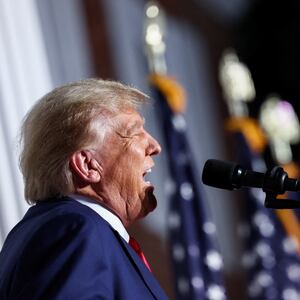I never thought I would be saying that the Justice Department should have waited before charging former President Donald Trump but I’ll say it now: Maybe they should have waited.
The reason for waiting would have been the fact that on Thursday—one week after Trump was charged in Florida—the U.S. Supreme Court handed down the decision in Smith v. United States, a case that decided whether the wrong choice of venue in a criminal case would not only be reversible error but also irreparable error—meaning that the case could not be re-tried in the correct venue.
In many ways, this decision is no surprise because, as the unanimous Supreme Court opinion stated, there is no reason to treat a mistake in venue any differently than any other violation of Constitutional rights—meaning it can be remedied. Per the Smith decision, a case that resulted in conviction but was brought in the wrong venue would have to be re-tried in the right place.
Venue is a constitutional right because it is imbued in the Sixth Amendment which required that a defendant be tried “wherein the crime shall have been committed.” But the argument that Timothy Smith—no relation to Special Counsel Jack Smith—made was that an error in choice of venue was irreparable and the defendant could not be retried.
This was the grave potential risk facing DOJ and Jack Smith: If they brought the Mar-a-Lago documents case in Washington, D.C., gained a conviction, and then on appeal a court determined the case should have been brought in Florida, then it would be game over with no chance to retry Trump. While we have no way of knowing just how important this risk was to the DOJ it seems impossible that it was not an important factor considered by them.
Prosecutors are risk-averse. They don’t like breaking new ground and this case is nothing if not breaking new ground. DOJ went months—as did the National Archives—asking and essentially negotiating with Trump to give back the documents, even issuing a grand jury subpoena and sending the chief of counterintelligence to Mar-a-Lago to ask for the documents—nicely. Even after the search warrant, AG Garland did not appoint a special counsel for months; one can argue over whether Garland’s pace with Trump has been glacial or appropriately careful but no one can seriously argue that the pace was rushed.
For that reason it is safe to assume that Garland’s background as a federal court of appeals judge for most of his career would have led to his insistence that careful attention be paid to issues like venue and the fact that the Smith case was pending. In short, the approach to this historically monumental case would not only have been to leave no stone left unturned but to try to leave no stones that the prosecutors might trip over.
Many respected commentators point to the fact that even if the Smith case were to have been decided before Trump was indicted, DOJ was right to bring the case in Florida because it was the correct venue to begin with and/or the decision to file in Florida avoids delay in the case that would be caused by Trump’s lawyers seeking to move the case to D.C.
However that holds little water because Trump’s entire defense involves delay with every day. It is part of the game of eating up the clock as the former president approaches the 2024 election season.
And the risk that the prosecution would draw Judge Aileen Cannon—a risk now fully realized—means delay is potentially available on an exponentially random factor basis. Before Judge Cannon’s unsound ruling in the special master litigation, no one would have thought a judge would try to hijack a criminal investigation. But that’s exactly what she did.
While the 11th Circuit Court of Appeals reversed her ruling with particularly strong language, that was not an admonition to her behavior but to her legal analysis. For those who think that the 11th Circuit will be keeping an eye on Cannon, they are wrong. That is not how it works. Her rulings—no matter how off-the-wall—will mostly be unchallengeable until after the case is over and then only if there is a conviction. Alternatively, if her rulings result in a rare appeal in the midst of a criminal case—known as an interlocutory appeal—then that very fact will be accomplishing Trump’s goal of delay. So no, the risk of delay has not been ameliorated by choosing Florida.
Bringing the case in Florida did completely remedy the fear that a conviction might be permanently thrown out if Smith had come down the other way. But waiting a week or two would have meant the DOJ had the answer to that worst-case scenario. Believing that the extra time gained by filing earlier seems optimistic at best and silly at worst. For example, the time gained by filing on June 13 is already eaten up by the fact that Trump’s co-defendant, Walt Nauta, will not enter his initial plea until June 27.
Sun Tzu opined that: “He will win who knows when to fight and when not to fight.” That applies to when to rush and when to wait. The time to rush would have been much earlier for DOJ if they had any realistic hope of getting this case tried before entering the red zone of the next presidential election cycle. With 20/20 hindsight, I think DOJ should have waited and brought the case in D.C. where it would have had a better jury pool and—most importantly—no Judge Cannon.







